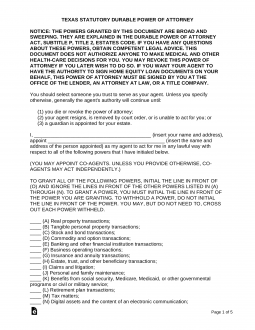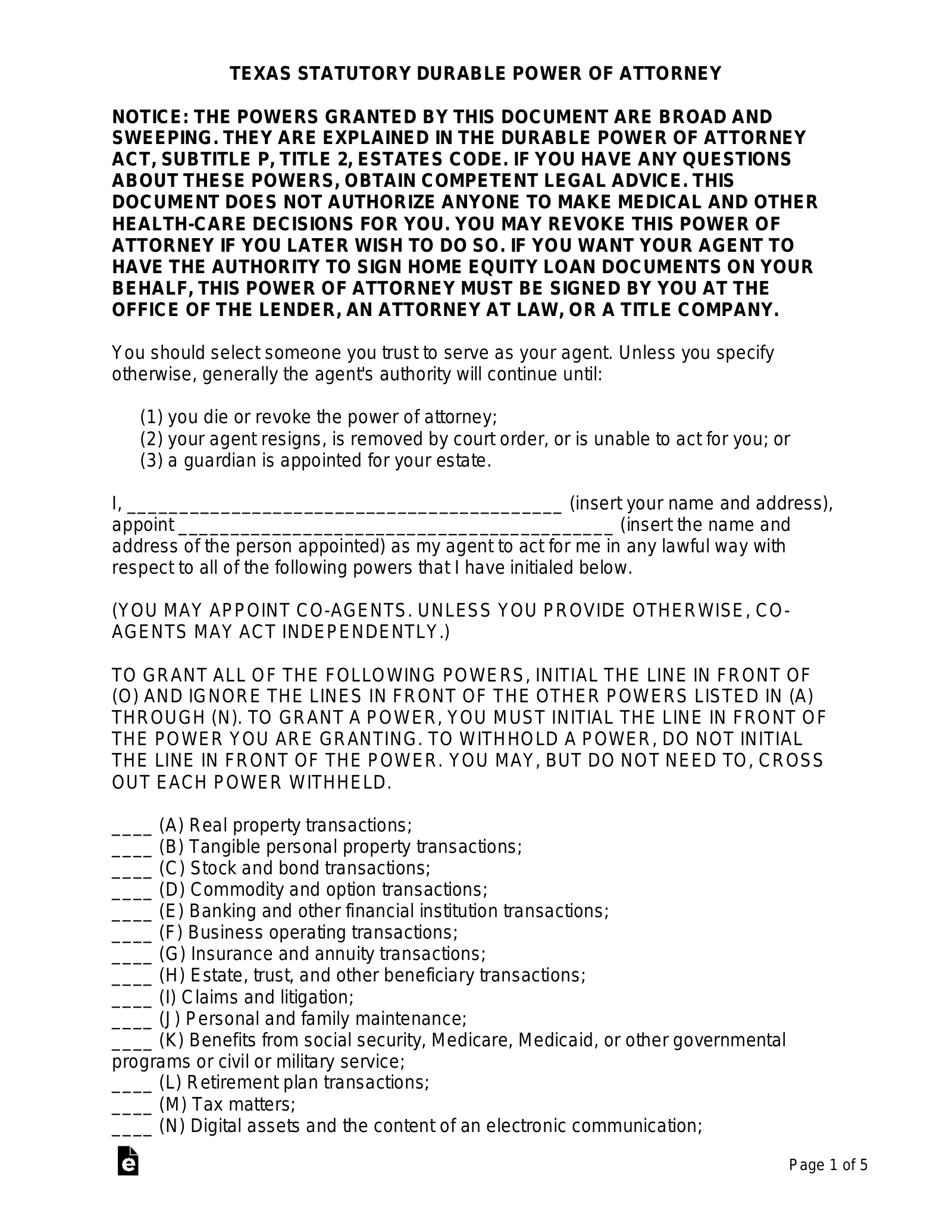Updated August 09, 2023
Texas power of attorney forms allow a person to grant another individual the right to make decisions and act on their behalf. The person handing over power is called the “principal” and the individual being appointed is called the “agent” or “attorney-in-fact.” There are many types of powers of attorney each geared to the principal’s needs. Some powers of attorney allow a person to transfer their financial powers while others authorize someone else to make medical decisions on their behalf.
By Type (9) |
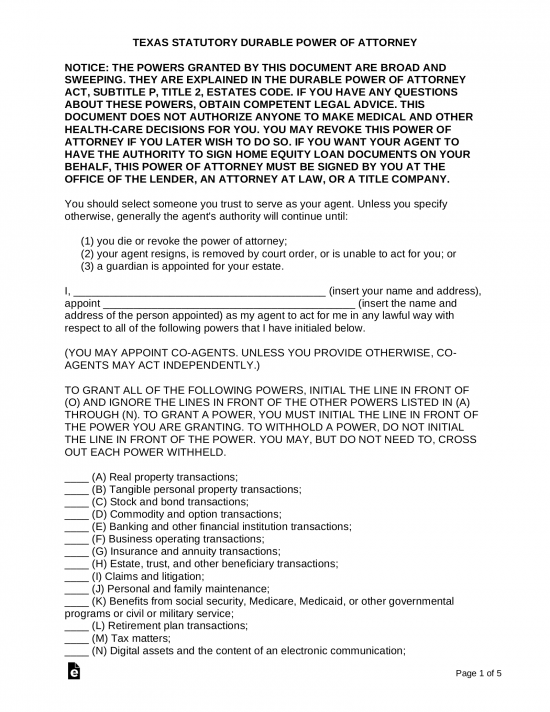 Durable (Statutory) Power of Attorney – This is a type that confers broad financial powers on your chosen representative. It will also continue to be in effect if you become incapacitated unless you revoke it before. Durable (Statutory) Power of Attorney – This is a type that confers broad financial powers on your chosen representative. It will also continue to be in effect if you become incapacitated unless you revoke it before.
Download: PDF, MS Word, OpenDocument Signing Requirement (§ 751.0021): Notary public. |
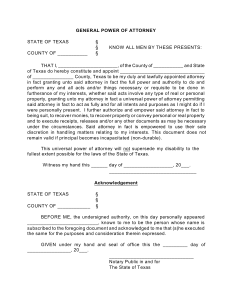 General (Financial) Power of Attorney – This is also a type that allows you to confer broad financial powers, however, unlike the durable form, it terminates automatically if you become incapacitated. General (Financial) Power of Attorney – This is also a type that allows you to confer broad financial powers, however, unlike the durable form, it terminates automatically if you become incapacitated.
Download: PDF Signing Requirement (§ 751.0021): Notary public. |
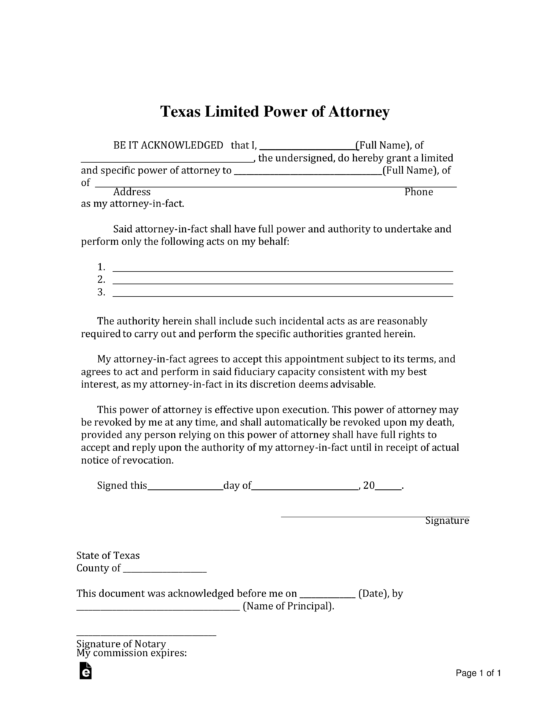 Limited Power of Attorney – This form of POA is less broad and can be tailored to meet your specific need to appoint a representative for a limited transaction. Limited Power of Attorney – This form of POA is less broad and can be tailored to meet your specific need to appoint a representative for a limited transaction.
Download: PDF, MS Word, OpenDocument Signing Requirement (§ 751.0021): Notary public. |
 Medical Power of Attorney – This form gives you the ability to designate a loved one to handle your healthcare issues and decisions in the event you can no longer communicate your wishes. Medical Power of Attorney – This form gives you the ability to designate a loved one to handle your healthcare issues and decisions in the event you can no longer communicate your wishes.
Download: PDF Signing Requirement (§ 166.154): Two (2) witnesses or a notary public. |
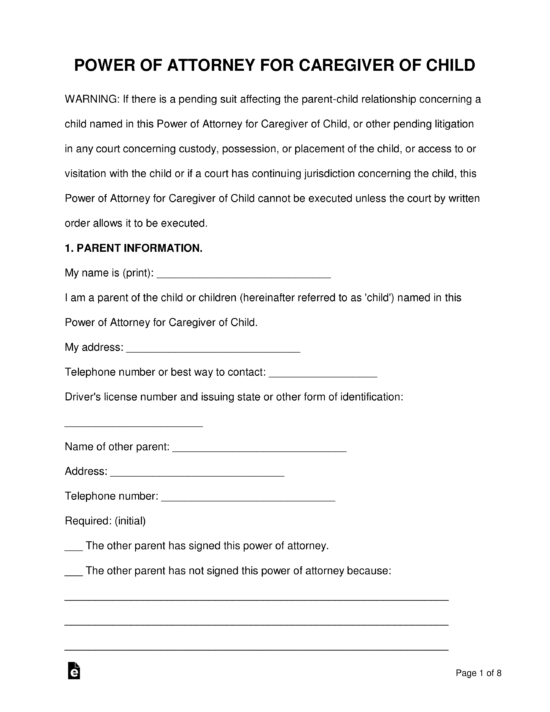 Minor (Child) Power of Attorney – For the use of a parent who would like to delegate the care of their son or daughter to the care of someone else. If the parent would only like to select someone else, in the chance they become incapacitated, they should fill in the Designation of Guardian for Incapacitation. Minor (Child) Power of Attorney – For the use of a parent who would like to delegate the care of their son or daughter to the care of someone else. If the parent would only like to select someone else, in the chance they become incapacitated, they should fill in the Designation of Guardian for Incapacitation.
Download: PDF, MS Word, Open Document Signing Requirement: If only one (1) parent is able to sign, the power of attorney must be witnessed by two (2) subscribing witnesses. It is suggested that the document be notarized. |
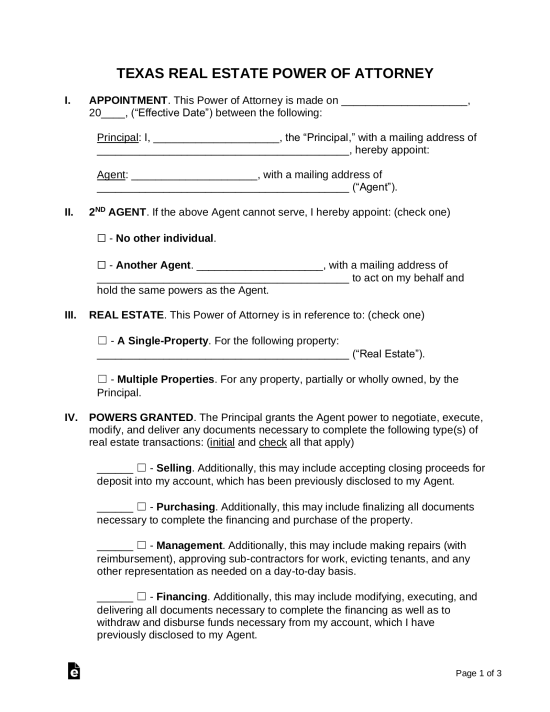 Real Estate Power of Attorney – Choose an agent to negotiate and handle the transaction of real property. This form may also be used to choose someone to make decisions on the repairs, leasing, and evictions of the premises. Real Estate Power of Attorney – Choose an agent to negotiate and handle the transaction of real property. This form may also be used to choose someone to make decisions on the repairs, leasing, and evictions of the premises.
Download: PDF, MS Word, OpenDocument Signing Requirement (§ 751.0021): Notary public. |
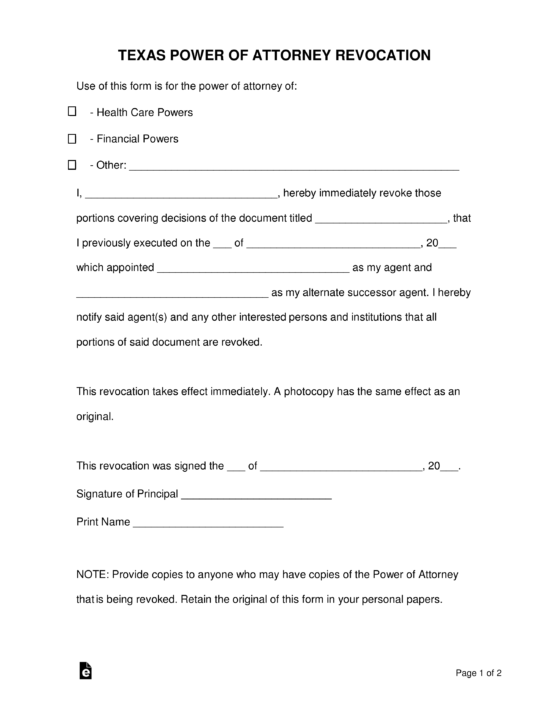 Revocation of Power of Attorney – This form is used when you have an existing POA that you wish to terminate. Make sure that your agents have a copy of this signed form so that there is no question that they are no longer to act under the original POA. Revocation of Power of Attorney – This form is used when you have an existing POA that you wish to terminate. Make sure that your agents have a copy of this signed form so that there is no question that they are no longer to act under the original POA.
Download: PDF, MS Word, OpenDocument Signing Requirement: No statutory requirement. However, it is suggested that the document is notarized. |
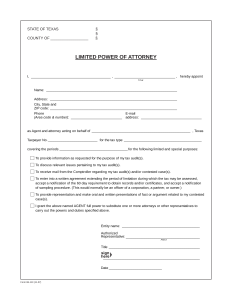 Tax Power of Attorney (Form 86-113) – This form is for use when you wish to designate a tax professional to handle your tax matters. Tax Power of Attorney (Form 86-113) – This form is for use when you wish to designate a tax professional to handle your tax matters.
Download: PDF Signing Requirement: Agent only. |
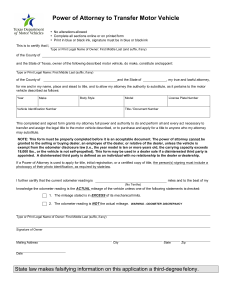 Vehicle Power of Attorney (Form VTR-271) – This form is for use when you wish to designate someone to handle your vehicle issues with the Texas Department of Motor Vehicles. Vehicle Power of Attorney (Form VTR-271) – This form is for use when you wish to designate someone to handle your vehicle issues with the Texas Department of Motor Vehicles.
Download: PDF Signing Requirement: Vehicle owner only. |

